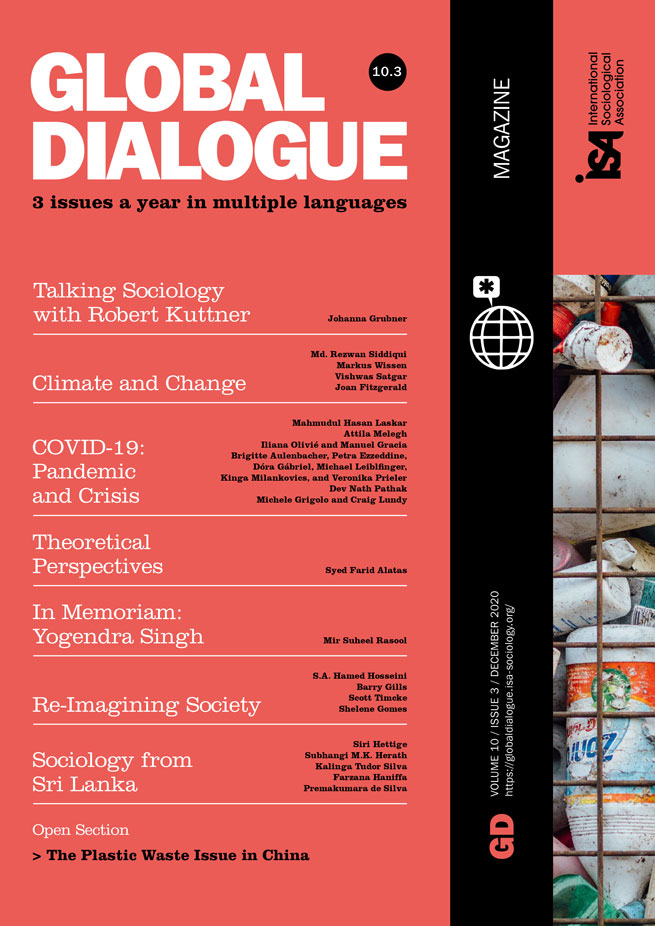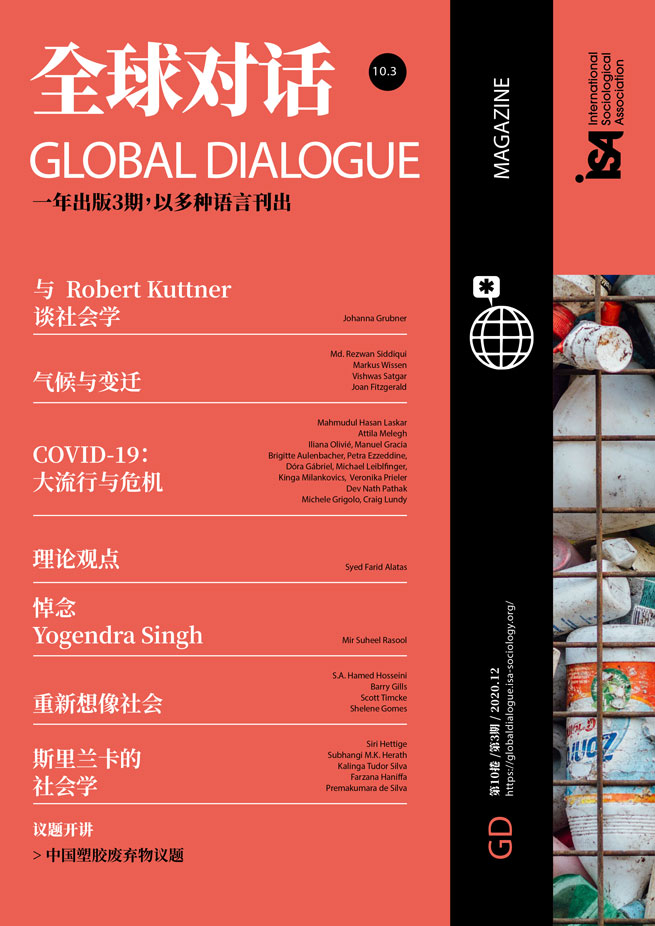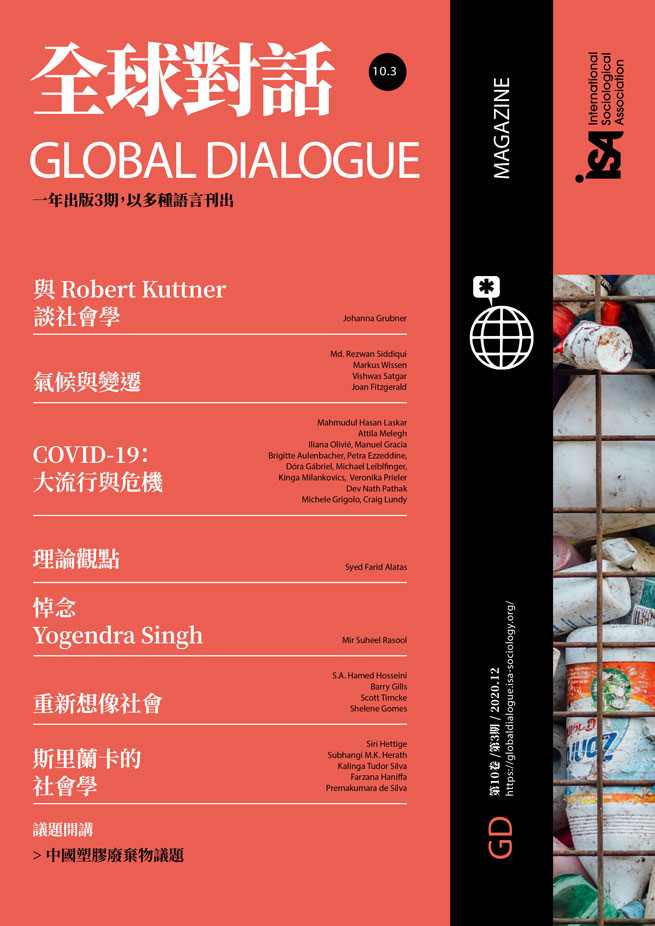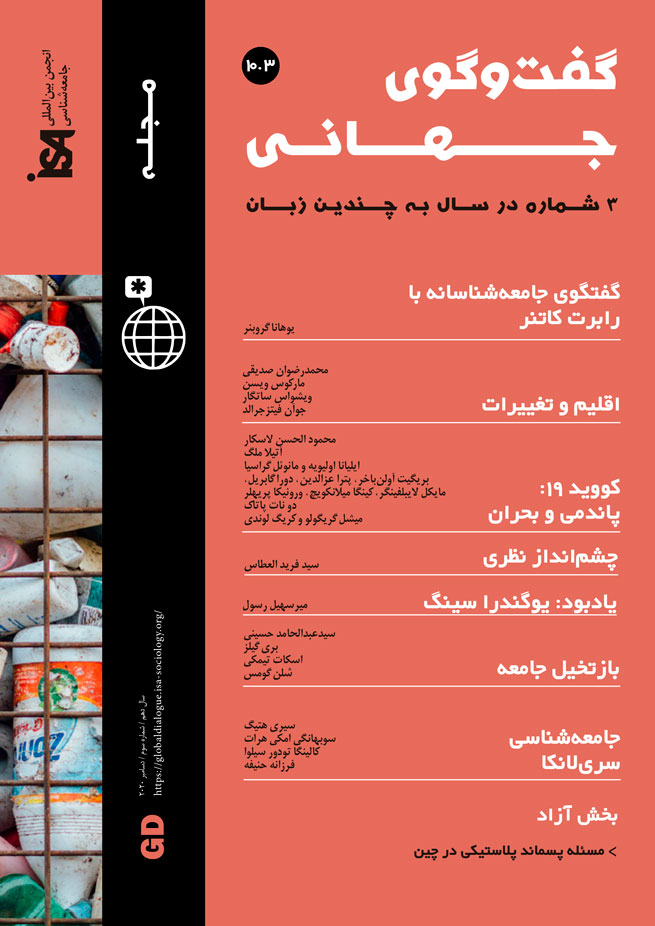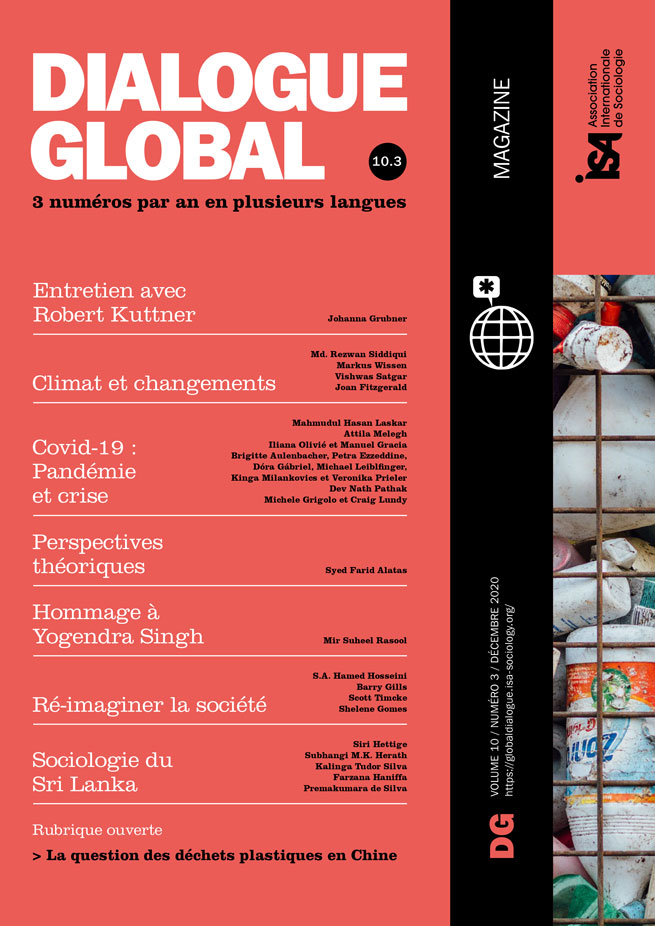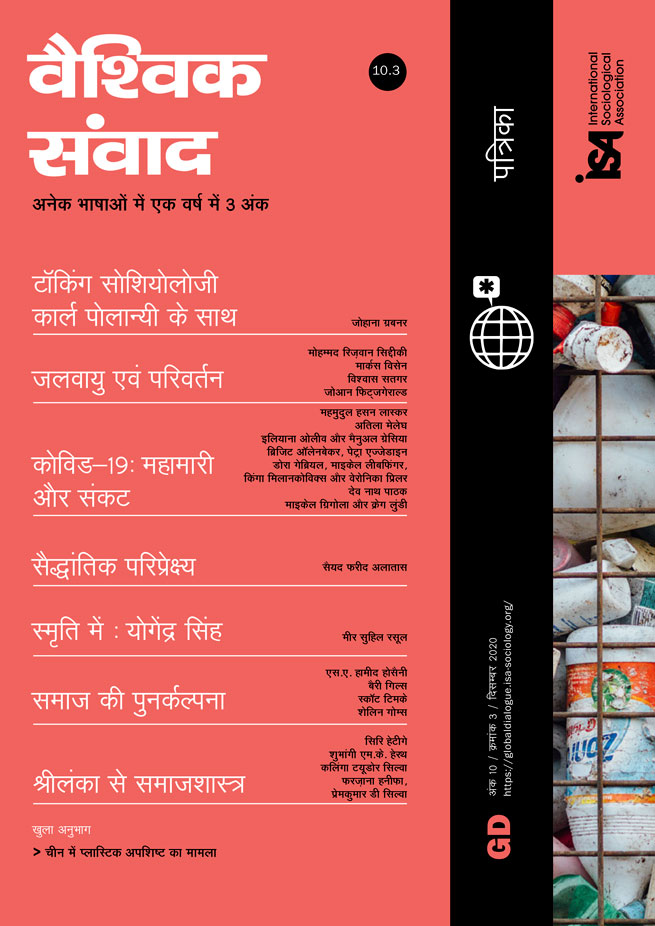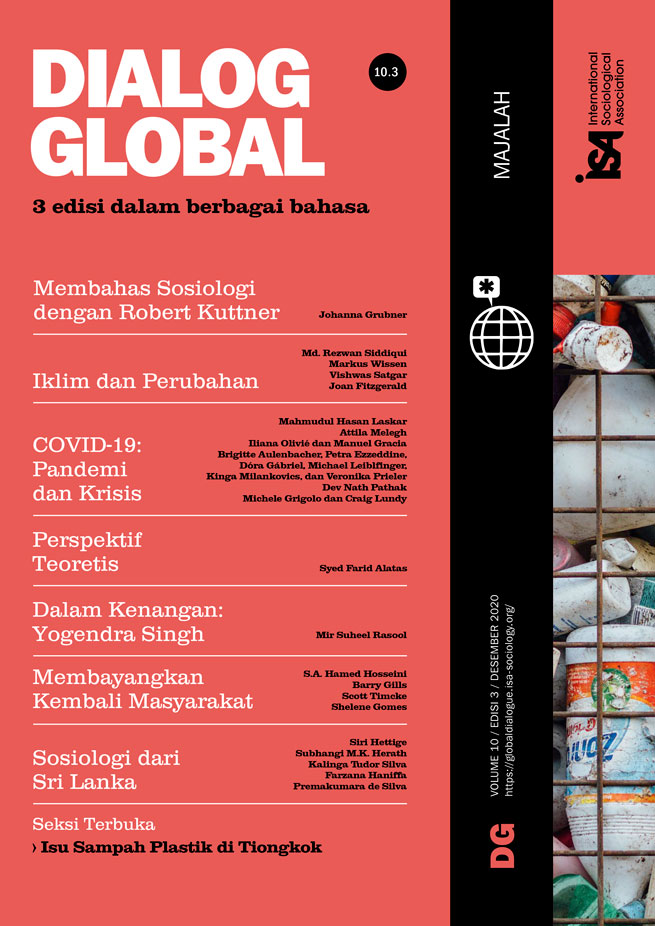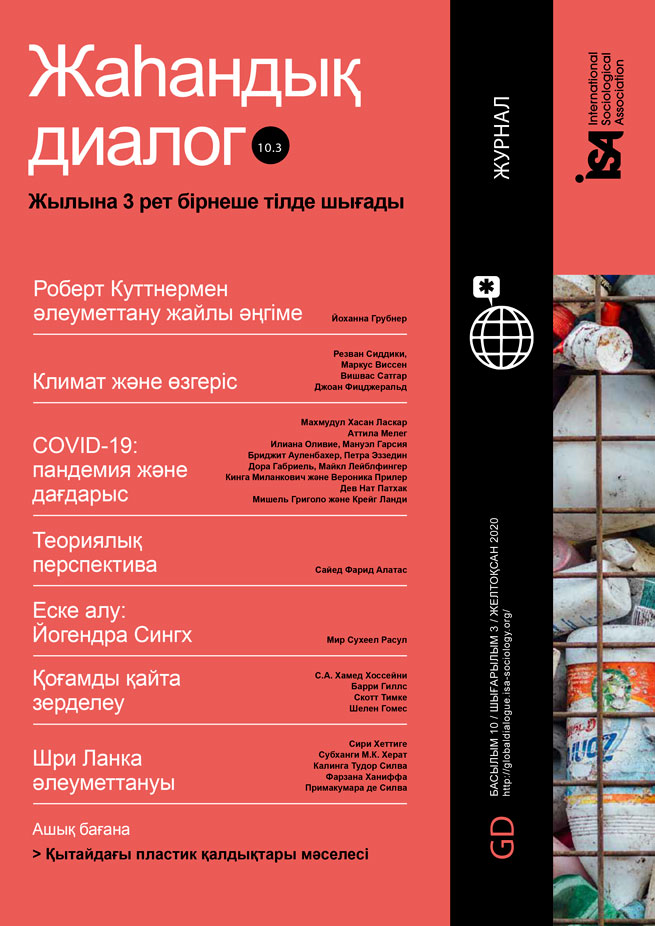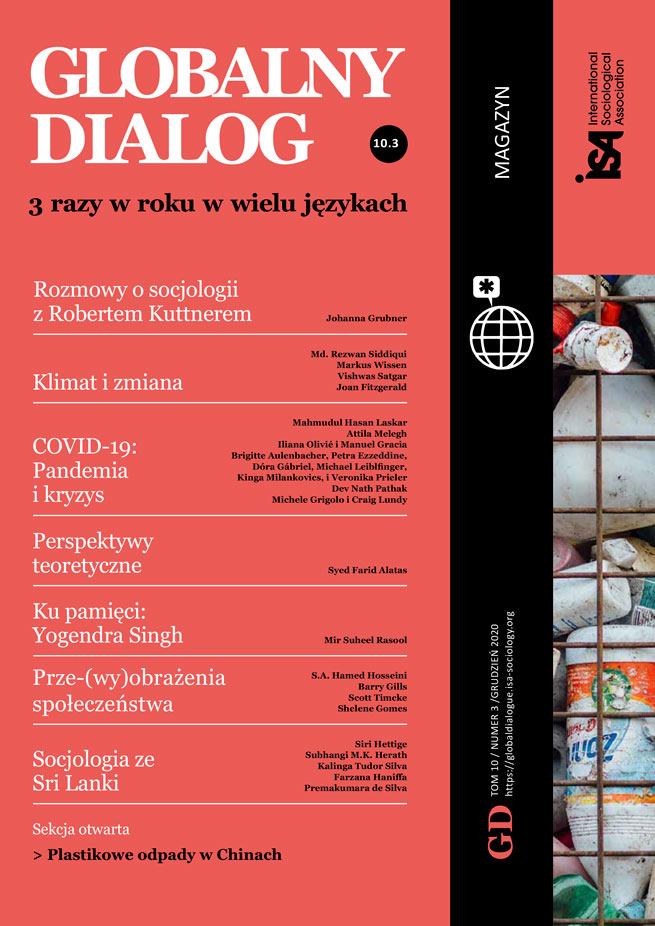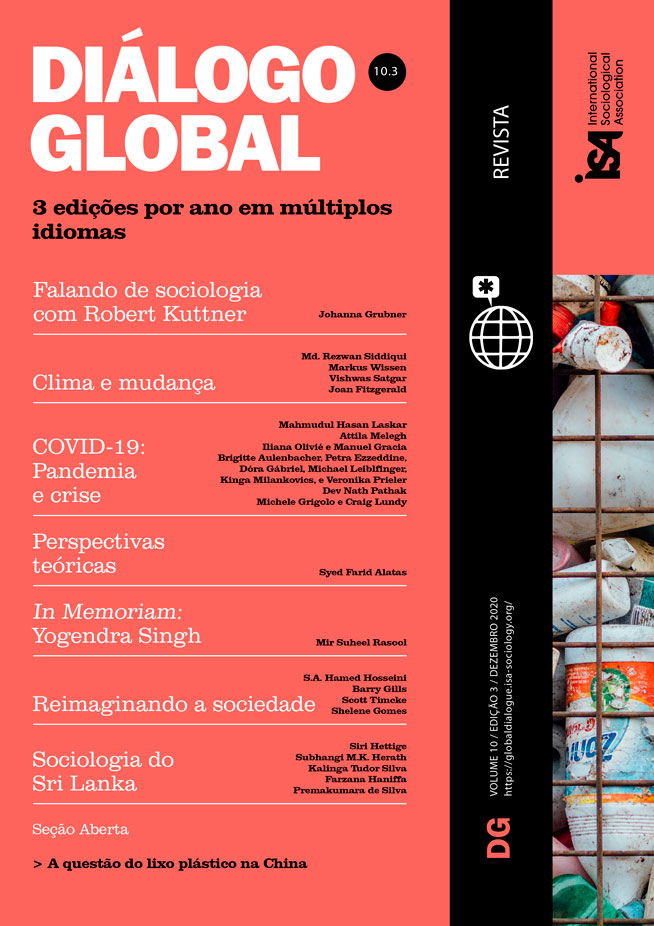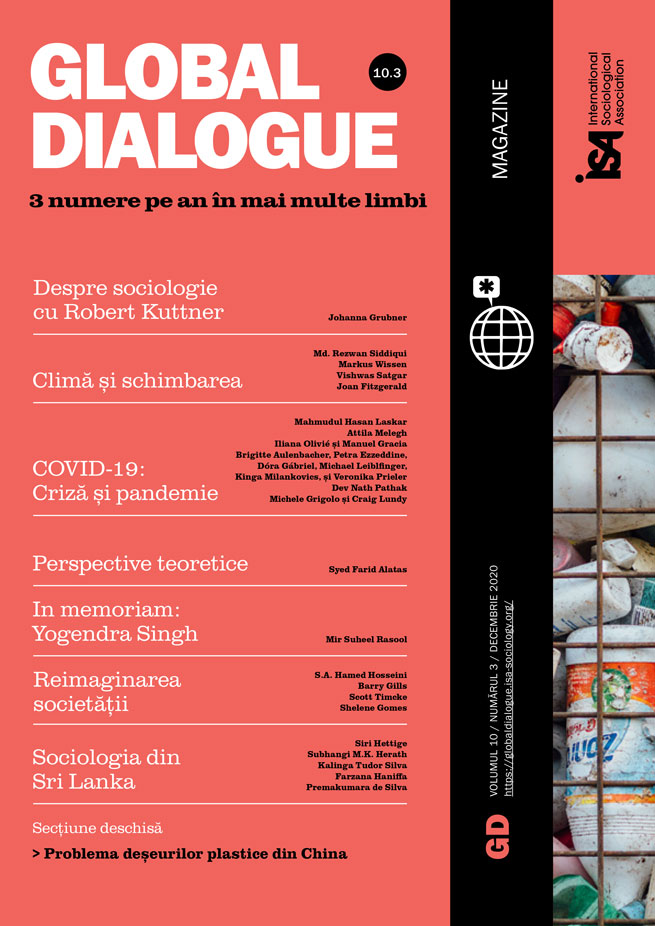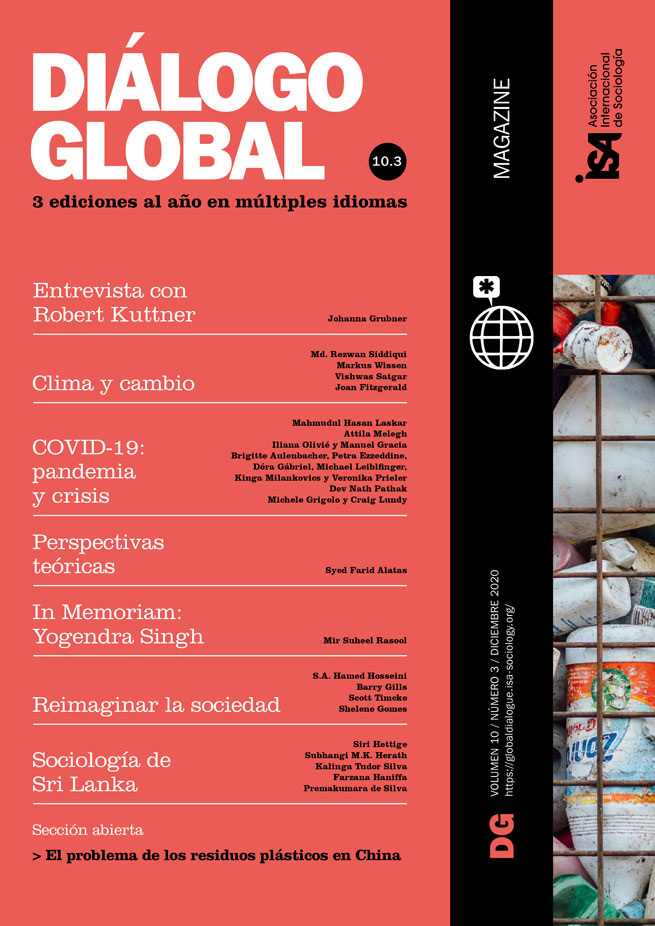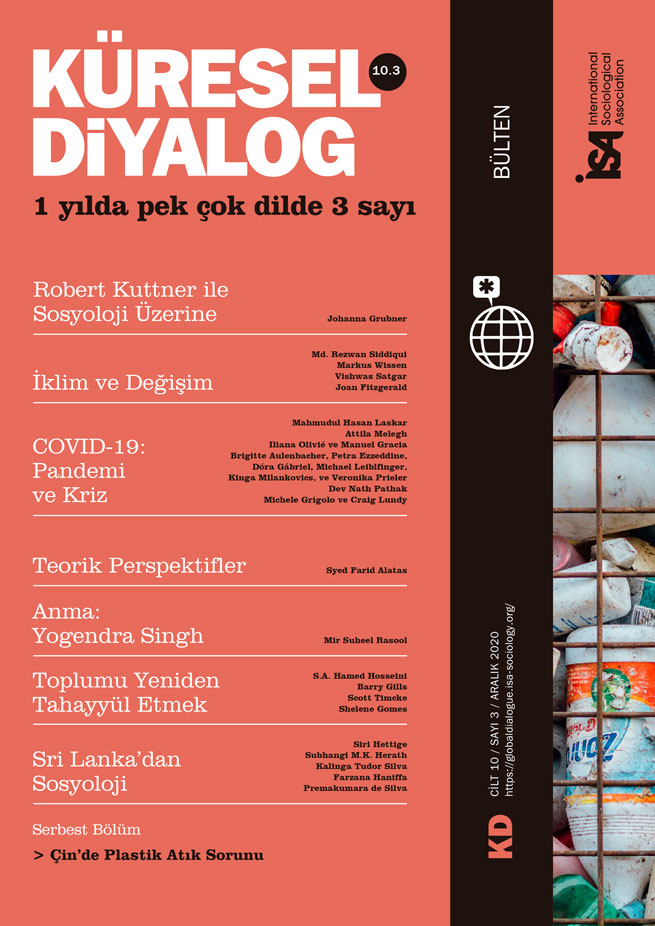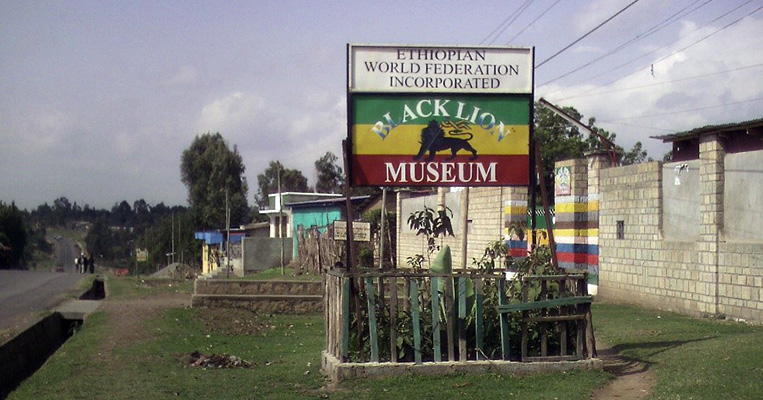Read more about Re-Imagining Society

Beyond “Koyaanisqatsi”: Reimagining Civilization
by Barry Gills

On the Urgency of (Re)Integrating with the Radical
by Hamed S.A. Hosseini
October 29, 2020
The 1930 coronation of Ras Tafari Mekonnen as His Imperial Majesty Emperor Haile Selassie I was, in part, a cinematic display of pride celebrating a new era in Ethiopian life. 12,500 kilometers away in the Caribbean, poor Black Jamaicans ruled by the British Monarchy watched newsreel footage of the spectacle. For the first time they saw a Black king.
Archival records show that soon thereafter Jamaicans exchanged information, read newspapers and magazines, seeking to find out as much as they could about Ethiopia. This potent symbolism of Africa was captured by Marcus Garvey in his play The Coronation of the King and Queen of Africa. This expectant gaze was undoubtedly an organic response to the horrors of racial capitalism.
A “counterculture of modernity”
The history of capitalism looks very different when written from within the Black experience. Although incomplete and not beyond critique, Rastafarians are emblematic of what Paul Gilroy called a “counterculture of modernity.” Trinidadians C.L.R. James and Claudia Jones inverted the orthodox analysis of modernity to well illustrate the centrality of the West Indies to the growth of European capitalism; Rastafari are likewise emblematic of a tendency for emancipatory projects to be always already wrapped up in vernacular concepts. This is an inversion of the idea that social change and development are best driven by institutions or state-directed projects.
Indeed, Rastafari cosmology is a good example of how subordinated subjects who envisioned a new way of life, then struggled accordingly. As such, Caribbean-grounded and Rastafari imaginative reinventions like these, which have long influenced the evolution of Caribbean ethnography and social theory, can help inspire a decolonial sociology for this century.
Elements of a decolonial sociology
To show that a discipline can be moved, let us start with the movement of people.
Through combining data collected during multiple fieldwork visits between 2008 and 2015 with postcolonial West Indian social theorists, we have come to understand Rastafari spiritual practice as the product of situated organic intellectuals who sought to provide a sociological explanation for their conditions and everyday life. Indeed, in their core formation, Rastafari “cosmopolitics” provides a rich description of social worlds, as Walter Rodney recognized in Rastafari with whom he “grounded” in postcolonial Jamaica.
During the second half of the twentieth century, waves of organized Rastafari migrated from the Caribbean to Shashamane, Ethiopia. Settling on land granted by Haile Selassie I earmarked for Africans in the diaspora, this urban community represents a potent political statement about how the pan-African social imaginary can be realized. Ethiopia is also a place that for Rastafari signifies the origin of humankind, as well as a divine and sacred place of Zion. Accordingly, settlement is called “repatriation,” which to us signals self-reinvention and a concurrent agenda for social change on their terms.
Given this sacred site, Rastafari continue to pilgrimage to Shashamane and otherwise financially support the local community. This support is especially important to the survival, social improvement, and reproduction of Rastafari values in Ethiopia, and by extension the religious community’s very identity. The recovery of dignity and its connection to divinity is done in the wake of the horrors of a long experience of subjugation during colonialism. This “capitalism and colonialism” connection is not written from the perspective of the London metropole, but rather of persons moving from Kingston to Shashamane.
Rastafari “cosmopolitics”
Not only do the Rastafari perceive Ethiopia to be a long-standing bastion of Christianity, but they appreciate it as the only African territory never to have been formally colonized by European powers. Building upon a preexisting idealization of Africa as a form of cultural resistance, Rastafari came to believe that Emperor Haile Selassie I was divine. The background to this belief stems from Caribbean peoples being well-versed in the Bible. Certainly Rastafarianism is also an outgrowth of West African-derived religious practices that survived the Middle Passage. But it is also true that as religious organizations opened schools in the early twentieth century throughout Jamaica, Biblical imagery became well known to ordinary people.
Rather than secular organizing, it was through the reinterpretation of these doctrines that collective resistance to white supremacy took shape. In this reinterpretation we find an early organic attempt to decolonize the Christian practices that supported colonial oppression in the Caribbean.
Within this framework, Rastafari embrace a common humanity, inclusive of those “in the faith,” as they say, and those who have not become Rastafari. This response could be construed as an emerging Southern cosmopolitanism that adheres to an attitude of openness toward cultural multiplicity. Rastafari “openness,” we suggest, is grounded in an historical awareness of Caribbean sociality made out of the transcontinental plantation economy, its hierarchies, multicultural environment, and imaginative acts of self-fashioning. In this way it is a direct challenge to white supremacy.
By no means were Rastafari the first popular expression of pan-Africanism - Paul Gilroy, Hilary Beckles, and Robert A. Hill, among others, describe many previous efforts. Nevertheless, their everyday practices can help enrich the empirical and conceptual inquiry into what we call “ordinary solidarity.” Ordinary solidarity raises questions around what a sociological imagination can look like from a framework of Southern cosmopolitanism grounded in the Black experience.
As an example of ordinary solidarity, Rastafari “cosmopolitics” can help sociologists highlight the ways in which localized scenarios interconnect with global processes. By following the rich description offered by these pathways we think there is the potential to draw upon the Black experience to reinvent sociology by contributing toward a decentered, decolonial discipline well positioned to conceptualize the enduring and emerging inequalities of the twenty-first century. In this way the emancipatory potential of “grounded” West Indian social theory carries on.
Scott Timcke, University of the West Indies, St. Augustine, Trinidad and Tobago <stimcke@gmail.com>
Shelene Gomes, University of the West Indies, St. Augustine, Trinidad and Tobago and member of ISA Research Committee on Sociology of Migration (RC31) <shelene.gomes@sta.uwi.edu>
This issue is not available yet in this language.
Request to be notified when the issue is available in your language.
If you prefer, you can access previous issues available in your language:
